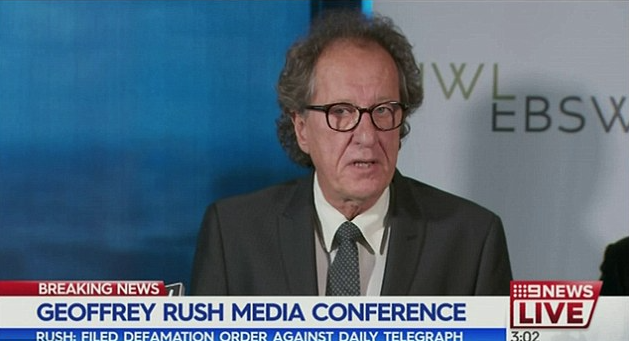Actor Geoffrey Rush speaks of family distress amid allegations of inappropriate behaviour
Geoffrey Rush has spoken of his “emotional spiral” amid claims in the Daily Telegraph he had inappropriately touched a fellow cast member during a production of King Lear.
The Oscar winning actor told Sydney’s Federal Court that he was “sick to his stomach”, felt “demonised” and “distraught” as allegations appeared on the front page of the newspaper.


